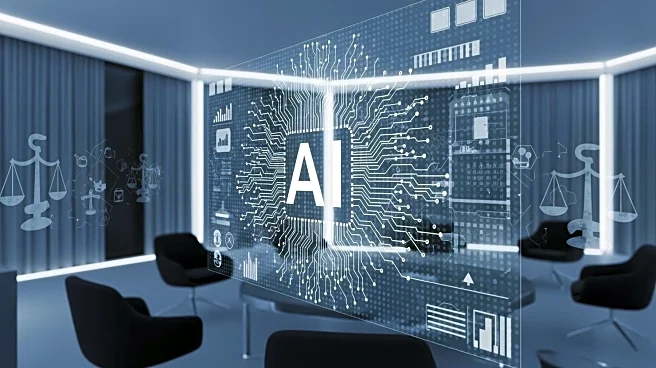What's Happening?
Clifford Law Offices is set to host its 19th annual free Continuing Legal Education (CLE) webinar on February 19, 2026, focusing on the ethical implications of artificial intelligence (AI) in the legal
field. The two-hour event, titled 'From the War-Room to the Bench: Navigating AI in the New Legal Frontier,' will explore how AI is transforming legal practices and the associated ethical challenges. The webinar will feature a panel of legal experts, including Robert Clifford, Daniel W. Linna Jr., Mark Palmer, Judge Michael Chmiel, and Judge Theodore Wilson. The discussion will cover AI's role in increasing efficiency and the potential litigation risks it poses, such as privacy issues and AI-generated bias. The event is approved for CLE credit in six states, including Illinois, Indiana, Missouri, Ohio, Wisconsin, and Iowa, but only for those attending the live broadcast.
Why It's Important?
The rapid integration of AI into legal practices presents both opportunities and challenges for legal professionals. As AI tools become more prevalent, they offer the potential to enhance efficiency and decision-making processes. However, they also introduce ethical dilemmas, such as ensuring compliance with professional responsibility rules and addressing AI-driven disputes. This webinar is crucial for legal professionals seeking to understand and navigate these complexities. By providing insights into the responsible use of AI, the event aims to equip lawyers with the knowledge to mitigate risks while leveraging AI's transformative potential. The CLE credits offered further underscore the importance of this educational opportunity for legal practitioners in multiple states.
What's Next?
Following the webinar, legal professionals are expected to apply the insights gained to their practices, potentially influencing how AI is integrated into legal workflows. The discussion may also prompt further exploration of AI-related ethical guidelines and policies within the legal community. As AI continues to evolve, ongoing education and dialogue will be essential to address emerging challenges and ensure that legal practices remain ethical and effective.










